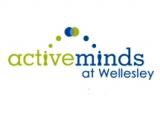Around campus you’ve probably heard people encourage you to practice self care. But you might be wondering what exactly is self care, how do I practice it, and what are the benefits?
Just like how our doctors encourage us to eat healthy, exercise and get 8 hours of sleep to care for our physical health, there are things we can do to take care of our emotional health. Self care activities can be helpful when you are feeling overwhelmed, anxious, sad or nervous. Self care can also be a good way to remember to reward yourself after accomplishing a difficult task or getting through midterms week. Remember that you deserve to feel happy and it isn’t selfish to take some time to take care of you!
On campus, many people talk about self care, which is wonderful. It’s good to remind ourselves and each other how important self care is. Because of how often we talk about self care, though, it can be easy for the practice to feel like a cliche. When it feels like self care is a trite idea that people throw around, it can be helpful to remind yourself and your friends what the bigger picture of self care can look like.
Self care is powerful because it can help you feel more at ease, and help make the things that you are doing seem more manageable. Also, self care is especially helpful in relationships. Just like how flight attendants tell us to put our air mask on before helping the people around us, sometimes we need to put the air mask on ourselves before we can fully help others. Self care is a purposeful act that helps you feel centered and in control. It is an ongoing way to cope with life stressors and help you find your breath.
Self care should be sustainable. We recommend that you pick activities that you want to do and can do regularly. It’s important to remember that self care does not need to be expensive, or cost money at all. There is often a stereotype that self care only consists of fancy yoga classes or expensive chocolates. While these things can be wonderful and helpful for some people, others can find self care in very different activities.
Here are some members of Active Minds’ top tips for self-care:
Have a mini spa day! You can paint your nails, put on a face mask. Sometimes, just taking a minute to wash your face with some water can be really helpful.
Meditate or go to one of the Cultivating Calm programs hosted by the Office of Religious and Spiritual Life. You don’t need to belong to a particular faith community on campus in order to utilize the resources ORSL offers. They are also a confidential resource if you want to talk to someone.
Your RA hosts programs regularly. Attend them! Enjoy whatever fun activity they have planned and relish in the new connections you are making with your floor community.
The Office of Student Involvement also hosts regular free events throughout the year (like the super popular Bingo nights).
Other regular actions you can take are to have a cup of tea or warm milk, go for a walk outside or exercise, and try to sleep for eight hours a night.
Self-care is not just about actions. Part of self care is also about giving yourself permission to ask for help and lessen your workload as needed. Let other people know if you need more time or if you won’t be able to take on a certain responsibility. Be kind to yourself! There are great resources on campus that can help you, like your Deans, MHEs, APTs, RAs or your professors.
Sometimes, though, self care is not enough. If you are constantly feeling overwhelmed or feeling hopeless, that may be a sign to reach out to professional resources, like the Stone Center. Self care is not all you need in order to manage your mental health symptoms. Therapy and medication can be vitally important for dealing with an illness or life change.
Also be on the lookout for Love Your Body Week, from November 14-18! Active Minds and other collaborators like the PERA instructors, Mezcla, Office of Religious and Spiritual Life, and the Stone Center (and more!) are working together to have events every day that highlight topics ranging from eating disorders to the mind/body connection. The Friday tea with Mezcla and Slater will include a discussion on self care!
Stone Center: 781-283-2839
As always, email any questions or comments to activeminds_wcso@wellesley.edu




